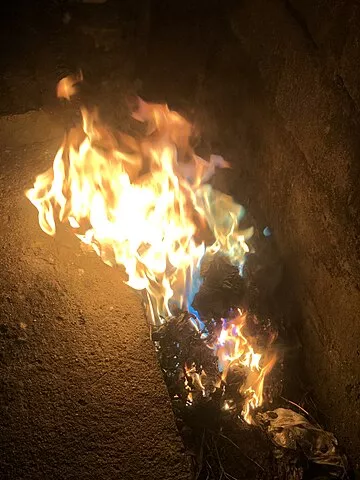Maddy Doeden

This file is licensed under the Creative Commons
Attribution-Share Alike 4.0 International license
In the quest for a sustainable future, the global community has acknowledged the pressing need to address the mounting waste crisis and reduce our reliance on fossil fuels. Traditional recycling methods have made commendable progress, but they certainly face limitations in dealing with our mounting plastic waste. Enter chemical recycling – a seemingly promising and innovative solution to our current plastic waste issue.
Chemical recycling, also known as advanced recycling, is a process that involves breaking down plastic into its basic molecular components through various chemical reactions. These reactions fall into two large categories: plastic-to-fuel, and plastic-to-chemical. Both processes involve the use of heat, solvents and chemical reactions to transform the original plastic. Largely, these processes aim to convert plastic waste back into raw materials that can be used to produce new plastics or other valuable products.
On the surface, the introduction of chemical recycling sounds promising. But, with a deeper look into it, research suggests that this new technology does little actual recycling, and instead is an energy-intensive process that generates hazardous pollutants and has a large carbon footprint.
Chemical recycling processes require high temperatures and often result in significant energy consumption. There are substantial energy requirements associated with the various processes involved in breaking down plastic waste into its basic building blocks – including the extreme heat needed to decompose plastic and turn it into gaseous, liquid, and solid byproducts. One study found that recycling a kilogram of high-density polyethylene plastic using one of the several chemical recycling tactics requires nearly seven times the amount of energy needed to make a kilogram of virgin plastic. This energy, typically, comes from burning fossil fuels which create air pollution and carbon emissions.
The energy-intensive nature of these processes poses many environmental challenges through the emission of harmful gases. This process relies on high heat, pressure and chemical catalysts to do the work of breaking down the plastic. Through this, many toxic chemicals and pollutants are generated and released.
Chemical recycling is an environmental health risk. All forms of plastic contain toxins, and when heated, it creates even more. All of these toxic chemicals find their way into our environment – through the water and the air, and can have immense effects on all of our ecosystems. Both plastic-to-fuel and plastic-to-chemical recycling components generate hazardous air pollutants and large quantities of hazardous waste. In 2019, nearly 500,000 pounds of hazardous waste were reported from just one chemical recycling facility. These pollutants that are generated are toxic chemicals released as a by-product of the production process and can have serious health impacts on the environment and on human health.
Chemical recycling has emerged as a seemingly promising technology, something that is championed by the plastics industry as a sustainable process to our plastic consumption. It is marketed as a “green” way to turn our old plastic into something new. However, it’s clear that chemical recycling is anything but sustainable. It is not a promising solution to our mounting plastic waste crisis, rather, a technology that has the potential to be detrimental to our environment and health. What we need is not another innovative way to recycle plastic, but instead, a focus on reducing plastic consumption across the board.
Plastic waste is everywhere in our modern world. It is estimated that about 242,000,000 metric tons of plastic waste are generated every year across the globe. Rather than focusing on how to get rid of it after it’s used, the global focus needs to shift to decreasing the consumption of single-use plastics altogether.
Maddy Doeden is an intern with the chapter’s Zero Waste team.
For more information:
- Chemical Recycling of Plastics is Just Greenwashing Incineration
- This “Climate-Friendly” Fuel Comes With an Astronomical Cancer Risk
- Exxon’s New “Advanced Recycling” Plant Raises Environmental Concerns
- Inside Indiana’s “Advanced” Plastics Recycling Plant
- Why Chemical Recycling Can’t Be Trusted
- Can Chemical Recycling Reduce Plastic Pollution?